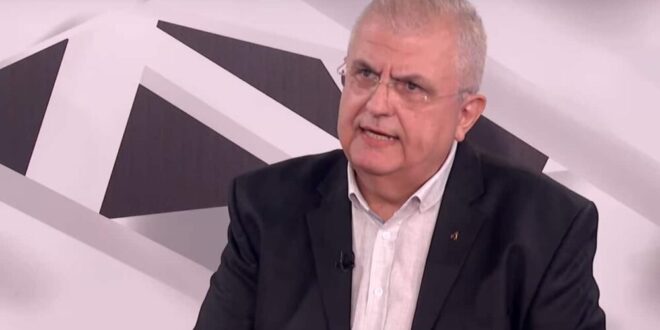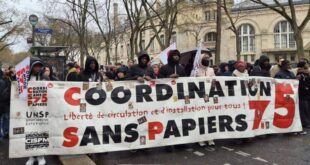I am not very familiar with the actions of the newly elected President of Montenegro. I only know that he was elected to the apostolic government of Zdravko Krivokapić on the recommendation, to put it mildly, of the Metropolitanate of Montenegro and the Littoral. Which already makes me doubt the desecularization of the democratic process in Montenegro – says Nenad Čanak, former president of the League of Social Democrats of Vojvodina, in an interview with Danas.
In almost all previous election cycles, as well as in the last one, Čanak stood out for his strong support for the outgoing President of Montenegro, Milo Đukanović, justifying his efforts by criticizing the opposing candidates and those who stood “on the line” Đukanović – that they are pro-Serbian, pro-Russian, with aspirations to deny Montenegrin statehood and identity.
*The day after the victory, Jakov Milatović said that the Republic of Montenegro will not “recognize” Kosovo, and that he will bring this country into the EU in five years. Anti-European, anti-NATO statements, which are the most frequently discussed from the point of view of criticism, are missing.
- When you look at who supported his presidential candidacy, you will see that there are mostly people who do not accept the fact of the independence of Montenegro as a state, the existence of Montenegrins as a nation, and are angry opponents of European integration and membership in NATO. So, from that side, I had a justified suspicion that it was something that was in the interest of the Kremlin and nationalist circles in Serbia and Northeastern BiH. Considering all the logistics, which were given there, and on the other hand, the actions of the Government of Montenegro itself, whose candidate was Jakov Milatović, in which there were a number of misunderstandings, from turning off the cameras at the border crossings, so that it was not possible to see who entered CG with what plates… So I’m quite skeptical about all that.
The fact is that since Milo Đukanović recognized the victory of his opponent, it is forgotten that Đukanović appeared as an opposition candidate…
*Why is it important?
- It is important that due to the fact that the complete logistics at the disposal of the government candidate largely led to the occurrence of various things that I cannot comment on because I do not have concrete evidence.
*Do you doubt the regularity of the election process?
- If it is true that over six thousand contracts for work were signed by the government in one day, then this strongly calls into question the legitimacy of that election. I can’t even say that it was a choice between Đukanović and Milatović, rather it was a vote against Đukanović, under completely different circumstances but with a very similar effect as the vote against Slobodan Milošević in 2000. It is not an ideological thing, but another emotion.
*Do you have any understanding for those who are fed up with the rule of one man for more than thirty years? Even if corruption and illegal actions are not suspected…
- Absolutely – yes. Of course there is a need. Changing politicians in power is a very important thing. I think that Milo Đukanović’s greatest victory is that in 2020 he was handed over power without a single word, without a single fight or anything like that. Just as he acknowledged the victory of Milatović. I think that this is the path that I would like to see those who have now won power take, so that they hand over power. This would mean that Montenegro is a democratic country.
*So what’s the problem?
- Of course, he has been in power for too long, more than 30 years. On the other hand there is something else, change for the sake of change is not good as a concept. Change for the better is something else, but change for the sake of change in the conditions of a rather loose and undeveloped tradition of democratic changes of power can lead to very big problems. We can see that in the example of the new government in Montenegro, from 2020 until today. The new government did not justify the trust.
*However, Montenegro did not deviate from the European path, did not question membership in NATO, changed its position on Kosovo, expressed greater attachment to Russia and Serbia, despite all allegations that this would be the case.
- Montenegro has a signed contract under which it cannot withdraw from NATO for the next 20 years. So they can’t change it even if they want to. What you just said is very interesting, if you compare it to the fact of how it was celebrated in Podgorica on election night. I was there live. There were now some Montenegrin flags in front of the Europe party. However, there were no Montenegrin flags anywhere else in Podgorica, instead there were exclusively either Serbian flags or Montenegrin flags with the coat of arms on the Serbian tricolor. And, what is most interesting, Europe did not celebrate the victory with a single EU flag.
Words are cheap, anyone can say what they want, but we will see what will happen in the future. I deeply hope that those who thought that this is a new, young and professional president who will continue European integration are right.
Unfortunately, given who backed him all up, I have legitimate doubts that will happen.
*You stated that with the fall of Milo Đukanović from power, both Serbia and Montenegro were left without a single civic option. However, we also have opposition parties in Serbia that are categorically in favor of imposing sanctions on Russia.
- I only see a big attempt to somehow mimic personal interests and present them as a pro-European option. But the facts refute that. Those opposition parties, which today are advocating for the introduction of sanctions against Russia, did not notice for months that Russia had committed aggression against Ukraine. Now all of a sudden they are on fire for Ukraine.
*What happened to make it change?
It happened due to a combination of circumstances that the Western allies convinced the leadership of Serbia that it is much better for Serbia to help the victory of Ukraine than to continue to defy it. The regime did not deliver 122 mm caliber ammunition to Russia, but that ammunition, which is currently the most demanded in Ukraine, arrived in Ukraine – from ammunition factories in Serbia. Which way and how, I don’t know. But the fact is that it happened. As happened when Vučić said that there is no longer a need to buy Russian weapons. It clearly says that the weapons are aligned with NATO standards and not with Russian ones.
As far as the opposition is concerned, Serbia does not currently have an articulated opposition. The opposition in Serbia is Vučić’s competition, they want to be the same as him and do the same as him. And that’s the whole story. And that wing of the opposition that swears by Kosovo and hallucinates, like Dveri and Zavetnik…, those are projects of the Russian service for the purpose of influencing the government in Serbia.
 Eurasia Press & News
Eurasia Press & News



